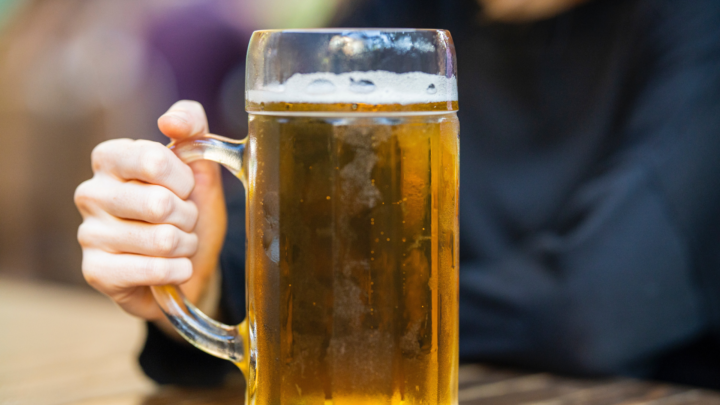So you are probably here because you got tipsy last time and wondering if you can still receive Communion or perhaps, you want to drink but are afraid to fall from sin. Whatever your reason, in this blog post we will discuss, whether is getting tipsy a sin.
Catechism
To start off, let’s see what the Catechism of the Catholic Church has to say about drinking.
CCC 2290 The virtue of temperance disposes us to avoid every kind of excess: the abuse of food, alcohol, tobacco, or medicine. Those incur grave guilt who, by drunkenness or a love of speed, endanger their own and others’ safety on the road, at sea, or in the air.
Clearly, the Catechism states that we Catholics should avoid abuse of many things. One of these is drinking alcohol. It does not explicitly prohibit it as long as it is not abused.
The Catholic Church allows drinking alcohol as long as it is in moderation.
Biblical Reference
These are some of the scriptures that talk about drinking alcohol.
“Now there were six stone water jars there for Jewish ceremonial washings, each holding twenty to thirty gallons. Jesus told them, Fill the jars with water. So they filled them to the brim. Then he told them, Draw some out now and take it to the headwaiter. So they took it. And when the headwaiter tasted the water that had become wine, without knowing where it came from (although the servers who had drawn the water knew), the headwaiter called the bridegroom and said to him, Everyone serves good wine first, and then when people have drunk freely, an inferior one; but you have kept the good wine until now.”
As written above, drinking is not in itself a sin, but drunkenness is as follows.
“Now the works of the flesh are obvious: immorality, impurity, licentiousness, idolatry, sorcery, hatreds, rivalry, jealousy, outbursts of fury, acts of selfishness, dissensions, factions, occasions of envy, drinking bouts, orgies, and the like. I warn you, as I warned you before, that those who do such things will not inherit the kingdom of God.”
Drunkenness
As mentioned above, drinking alcohol is not inherently sinful, it’s drunkenness. The Church warns us of abuse that could result in sins. Just like food in case of gluttony, and game and sports addiction which could hinder performing responsibilities. So it is a must to put everything into moderation.
Tipsy
Now that we already have a background of teaching regarding drinking alcohol, let’s proceed to elaborate on what tipsy really is.
Tipsy means slightly drunk. Unsteady and staggering from the effects of drinking.
Based on its definition, being tipsy is not being fully drunk.
However, note that being drunk slightly could result in actions that lack poor judgment. When you get tipsy, you become emotionally unstable which could end up in other sins such as lust and violence.
This could also affect your physical health. Deliberate intention to be intoxicated although you know the negative risk it could bring is also a sin. We should take care of our bodies. This is the temple of the Holy Spirit, and if we keep on drinking, we are damaging it.
In the case of alcohol addiction, one must take the steps to heal. This might be a tough process but it is going to be worth it in all aspects of life whether it be physical, mental, emotional, or spiritual.
Getting Tipsy a Sin
It’s time to answer the question.
Is Getting Tipsy a Sin?
It depends. If you are prone to acting sinful when you get tipsy but you’ll do it anyway, then it could be a sin. To add, being tipsy often could risk your health, causing negative effects on your body.
Mortal Sin
After clarifying that getting tipsy can be a sin,
Is it a mortal or venial sin?
Just a quick recap, the Catholic Church categorizes sin depending on its gravity.
It could be mortal or venial.
These are the conditions for a sin to be mortal.
- It must involve grave matter
- Committed with full knowledge
- Committed with deliberate consent
Let’s use getting tipsy as an example.
If one had drunk slightly causing to be tipsy, aware that it would deprive the use of reason that could result in sin but still committed it, then there is a mortal sin.
To elaborate.
First, slightly abusing intoxicating drinks deprives the use of one’s reason. Meaning the drinker loses consciousness in making a sound decision.
Next, that person committed it in full knowledge. Meaning there was an awareness that it was a sin.
Lastly, committed it with full consent. Despite the fact that there was a consciousness that it was sinful, it was still deliberately committed.
Note that all conditions must exist. If a sin lacks even just one of these conditions, it will then fall as venial.
However, venial sins are still encouraged to be confessed.
Confession
Since getting tipsy can be a mortal sin,
How to confess getting tipsy?
To confess, you just have to tell the priest your sin. In this case, getting tipsy. If it resulted in other sins such as fornication or violence, you also have to reveal them.
You can also mention to him the times you fell for this specific sin.
The priest will then give you counsel, ask you for penance, and finally absolve you.
If it is your first time in confession, you can check this Confession Guide.
Resources
As elaborated, drinking alcohol can be addictive. Therefore, just like other addictions, it has to be addressed properly.
If you have an addiction to alcohol or perhaps still recovering from it, here are some of the resources available to consider.
- We Thirst: Christian Reflections on Addiction
- Hope in Christ
- Calix Society
- The Opioid Epidemic: A Catholic Perspective
- Catholic in Recovery
- Catholic Guide to Drinking
You can also check this workbook that helps with addiction recovery.
Conclusion
We, Catholics, have given free will. We can do many things but despite that, we must always be mindful that everything has limits.
Drinking alcohol is not a sin. But, only to a certain point. As faithful, we are responsible to drink in moderation.
St. Matthias the Apostle, Patron Saint of Alcoholics, pray for us.

